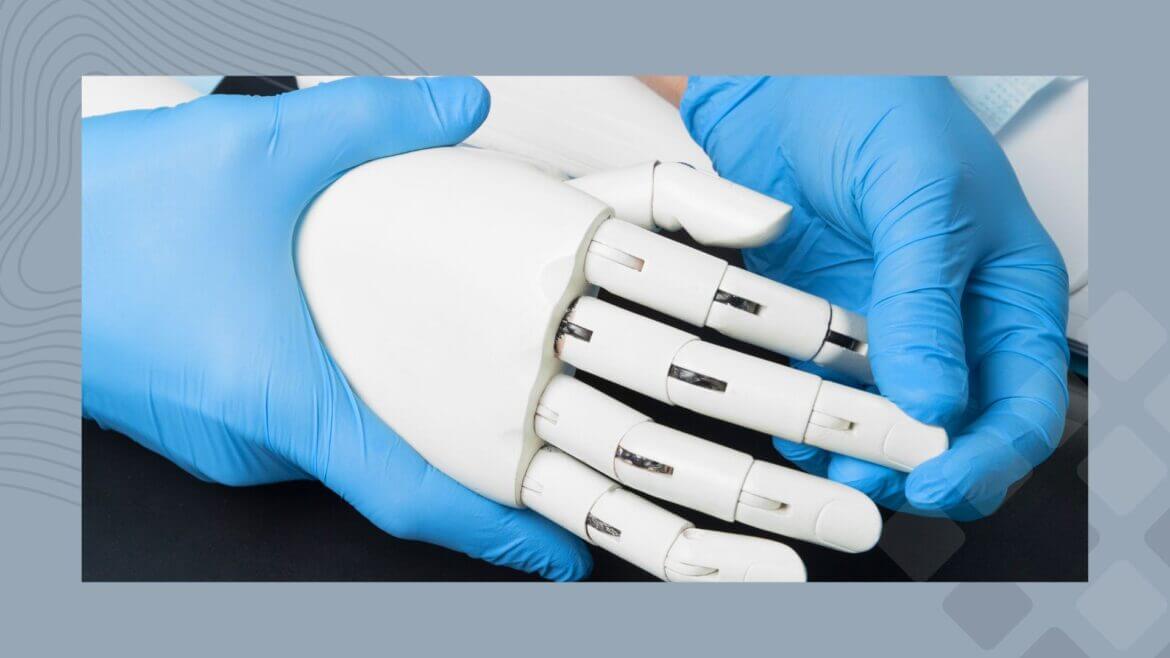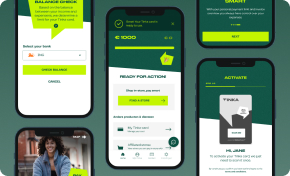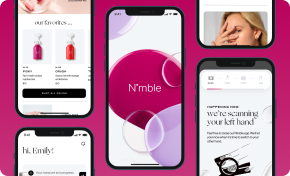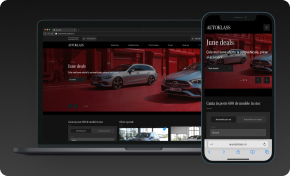In today’s healthcare landscape, striking a balance between addressing medical paternalism and maintaining an essential human touch is paramount. This is where Large Language Models in Transforming Healthcare come into play. AI-driven large language models (LLMs), like OpenAI’s chatGPT, have the potential to play a significant role in bridging this gap, offering innovative solutions to streamline communication, refine language, and enhance the overall diagnostic process. In this article, we explore how LLMs, as key drivers of this transformation, can revolutionize various aspects of healthcare by assisting in pre-consult automated interviews, language refinement, and diagnostic efficiency. Additionally, we delve into the benefits of fine-tuning LLMs for accurate interpretation and labeling of patient information, ultimately fostering a more patient-centered approach to care that prioritizes effective communication and understanding.
Digital Transformation for Competitive Advantage
Empowering Your Business with Tailored Digital Solutions
Explore Digital TransformationPre-consult Automated Interviews with LLMs
One of the innovative applications of LLMs in healthcare is their use in conducting pre-consult automated patient interviews. LLMs can gather essential information about their symptoms, medical history, and concerns by engaging patients in a structured conversation before their consultation. This information is then summarized into concise notes provided to the healthcare provider before the consultation.
The benefits of using LLMs for pre-consult interviews are multifold. Firstly, having access to summarized notes enables healthcare providers to understand the patient’s concerns more efficiently. This saves time and ensures that the doctor is well-prepared to address the patient’s needs during the consultation itself.
Secondly, LLMs can create a safe and non-judgmental space for patients to communicate their concerns, especially for those who may feel anxious or struggle with verbal communication. This can lead to a more accurate and complete representation of the patient’s symptoms, which is vital for effective diagnosis and treatment.
Lastly, using LLMs in pre-consult interviews can help reduce the cognitive load on healthcare providers, allowing them to focus on the most relevant aspects of the patient’s condition during the consultation. By streamlining the information-gathering process, LLMs can enhance the overall efficiency of the healthcare system and contribute to more personalized and effective patient care.
Custom Software Perfectly Aligned with Your Strategic Objectives
Software Solutions that Fit and Enhance Your Business Strategy
Explore Custom SoftwareLanguage Refinement Through LLMs
Language refinement is another crucial aspect where Large Language Models in Transforming Healthcare can significantly impact patient care. Patients often struggle to articulate their symptoms and feelings in a way that medical professionals can easily understand. Here, LLMs can be employed to standardize patient descriptions into a consistent format, making it easier for healthcare providers to comprehend the information presented to them.
In addition, LLMs can help decipher regional expressions or colloquialisms that might be unfamiliar or unclear to the doctor. LLMs can bridge linguistic gaps and contribute to a more effective diagnostic process by enhancing the clarity of communication between patients and healthcare providers.
The benefits of language refinement through LLMs extend beyond improved communication. With a clearer understanding of the patient’s symptoms and concerns, healthcare providers can expedite the diagnostic process, ultimately leading to more accurate treatment plans. This can result in better patient outcomes and increased satisfaction with the healthcare experience.
Furthermore, refined and standardized language can facilitate better collaboration among healthcare professionals. When medical records and patient reports are written in a consistent and clear format, it becomes easier for doctors, nurses, and other healthcare providers to share information and coordinate care, ensuring that patients receive the most appropriate and timely interventions.
Overall, using LLMs for language refinement can transform how patients and healthcare providers communicate, ultimately leading to more efficient diagnoses and improved patient care.
Streamlining Diagnostics with LLMs: Large Language Models Transforming Healthcare
The potential of Large Language Models in Transforming Healthcare to streamline diagnostics and improve the overall efficiency of the healthcare system is immense. By accurately interpreting and labeling patient information, LLMs can help healthcare providers more easily pinpoint the actual problem, reducing the effort required to reach the correct diagnosis and ultimately leading to more effective treatment plans.Discover the transformative power of Large Language Models in Transforming Healthcare. Learn how LLMs are revolutionizing the healthcare industry, from streamlining diagnostics to improving communication.
One of the key ways LLMs can streamline diagnostics is by refining patient reports on their symptoms and current feelings. By analyzing these reports and translating them into a more structured and clinically relevant format, LLMs enable healthcare providers to understand the patient’s condition better and potentially identify patterns or connections that might have been missed in the patient’s initial description.
Moreover, LLMs can contribute to more efficient diagnostic processes by focusing on the most relevant and accurate information. This can be particularly beneficial in busy healthcare settings, where providers are often pressed for time and resources. By reducing the time spent on gathering and interpreting patient information, LLMs can help healthcare professionals dedicate more time to formulating accurate diagnoses and appropriate treatment plans.
Additionally, the use of LLMs in diagnostics can lead to a reduction in unnecessary tests. With a clearer understanding of the patient’s symptoms, healthcare providers can better determine which tests are most appropriate and relevant for the patient’s condition. This not only saves time and resources but also minimizes patient discomfort and anxiety associated with undergoing multiple tests.
In summary, integrating LLMs into the diagnostic process can greatly enhance the efficiency and accuracy of healthcare services, ultimately leading to improved patient outcomes and satisfaction.
IT Consultancy for Strategic Advantage
Tailored IT Solutions to Drive Your Business Forward
Discover IT ConsultingAdditional Applications of LLMs in Healthcare
Beyond the areas of pre-consult interviews, language refinement, and streamlining diagnostics, LLMs can be utilized in various other aspects of healthcare to improve patient outcomes and satisfaction. Some additional applications of LLMs in healthcare include:
- Personalized patient education: LLMs can be used to create tailored educational materials for patients, considering their unique medical history, needs, and preferences. This empowers patients to understand their health conditions better, allowing them to engage more effectively with their healthcare providers and make informed decisions about their care.
- Clinical decision support: LLMs can be integrated with clinical decision support systems to assist healthcare professionals in making evidence-based decisions while considering the patient’s specific circumstances. By providing relevant and up-to-date information, LLMs can contribute to more accurate and personalized treatment recommendations.
- Research and knowledge synthesis: LLMs can be employed to analyze and synthesize vast amounts of medical literature and research data, enabling healthcare providers to stay current with the latest advances in their field. This can lead to the implementation of cutting-edge treatment options and improved patient outcomes.
- Telemedicine and remote consultations: LLMs can facilitate more effective communication between patients and healthcare providers in remote settings, ensuring that patients receive timely and appropriate care even when in-person consultations are not feasible.
- Mental health support: LLMs can be used to develop chatbots and other digital tools that provide mental health support to patients, offering a safe and non-judgmental space for individuals to express their concerns and receive guidance.
By incorporating LLMs into various aspects of healthcare, we can move towards a more patient-centered approach that addresses medical paternalism while maintaining the essential human touch. The potential of LLMs to transform healthcare is vast, and as the technology continues to evolve, we can expect even more innovative and beneficial applications to emerge.
Advanced R&D Solutions Tailored for Your Business Growth
Innovation Is at the Core of Every Product Through R&D-Focused Software Development
Learn About R&D ServicesFine-tuning LLMs for Improved Interpretation and Labeling of Patient Information
One promising avenue for leveraging the power of AI-driven LLMs in healthcare is fine-tuning these models to interpret and label raw patient information accurately. By doing so, LLMs can assist healthcare providers in more easily pinpointing the actual problem, reducing the effort required to reach the correct diagnosis and ultimately leading to more effective treatment plans.
To achieve this, LLMs can be trained on large datasets of medical records, research literature, and clinical guidelines, ensuring that the models are well-versed in the nuances and complexities of medical language and symptom presentation. By continuously updating and fine-tuning these models, we can ensure that they remain up-to-date with the latest medical knowledge and best practices.
Fine-tuning LLMs can significantly impact the diagnostic process, as it enables healthcare providers to understand patient-reported symptoms and feelings better. This clearer understanding, facilitated by AI-driven LLMs, can contribute to more accurate and efficient diagnoses, ultimately improving patient outcomes and satisfaction.
Moreover, fine-tuned LLMs can help healthcare providers focus their attention on the most relevant and accurate information, streamlining diagnostic processes, and reducing the time and resources needed to reach a diagnosis. This can be particularly beneficial in busy healthcare settings, where providers are often pressed for time and resources.
In conclusion, the potential of fine-tuned LLMs to accurately interpret and label patient information offers a valuable opportunity to enhance the diagnostic process in healthcare. By empowering healthcare providers with a clearer understanding of patient-reported symptoms and feelings, AI-driven LLMs can contribute to more accurate and efficient diagnoses, ultimately improving patient outcomes and satisfaction.
Embracing LLMs to Address Medical Paternalism and Improve Patient Care
Medical paternalism, where healthcare providers make assumptions about a patient’s knowledge and understanding, can lead to miscommunication, misdiagnosis, and suboptimal treatment plans. To address this issue and improve patient outcomes, we must embrace the potential of AI-driven LLMs in healthcare settings.
LLMs have the capacity to facilitate more effective communication between patients and healthcare providers, creating a safe space for patients to communicate their symptoms and concerns. By employing LLMs in pre-consult automated interviews, refining patient language, and streamlining diagnostics, we can reduce the impact of medical paternalism on patient care.
Moreover, LLMs can play a significant role in various other aspects of healthcare, such as personalized patient education, clinical decision support, research and knowledge synthesis, telemedicine, and mental health support. By fine-tuning LLMs for improved interpretation and labeling of patient information, we can further enhance the diagnostic process and improve patient satisfaction.
Embracing LLMs in healthcare is a crucial step towards a more patient-centered approach, where the focus is on empowering patients and fostering authentic connections between patients and healthcare providers. As AI technology continues to evolve, it is essential that we harness its potential to address medical paternalism and transform healthcare for the better.
Are you intrigued by the potential of Large Language Models in transforming healthcare? Discover more about how our solutions can elevate your healthcare practice. Visit our contact page on our main website and get in touch with us today. We’re ready to assist you in this transformative journey!










